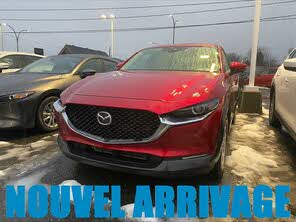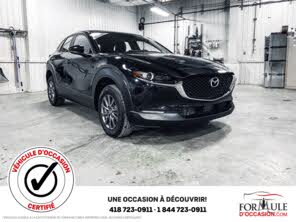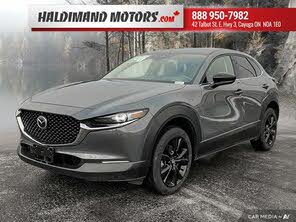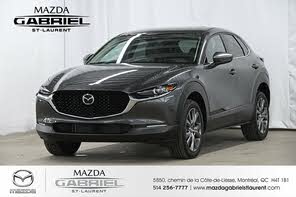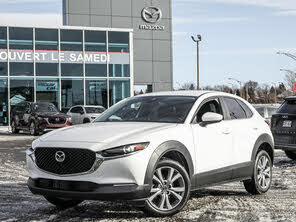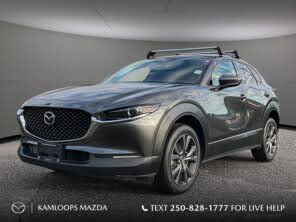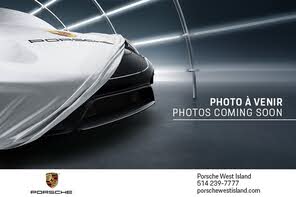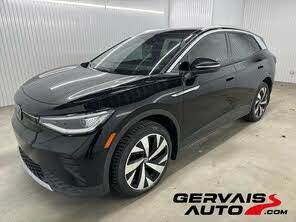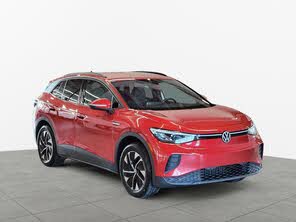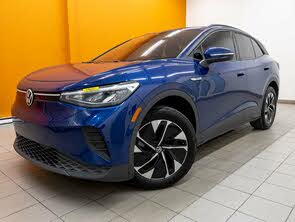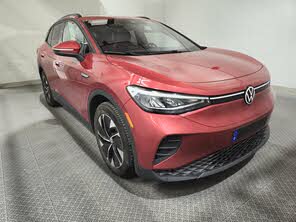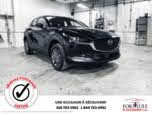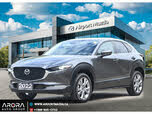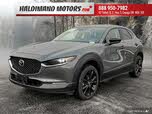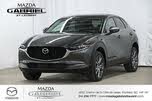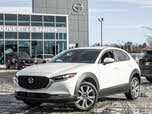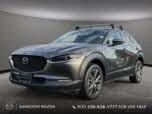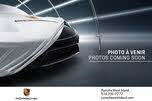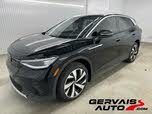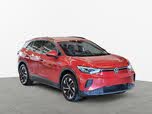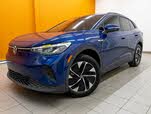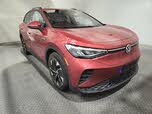2022 Mazda CX-30 vs 2021 Volkswagen ID.4
Overview | |
MSRP$39,995 | MSRP$22,200 |
Average price$34,678 | Average price$28,493 |
Listings5 | Listings45 |
Ratings & Reviews | |
User Reviews | User Reviews |
Expert reviews7.3 out of 10 | Expert reviews8.0 out of 10 |
Pros
| |
2021 Volkswagen ID.4 Reviews SummaryThe “Dieselgate” emissions scandal forced Volkswagen to double down on electric cars, and now we’re finally seeing the first result of that: the 2021 Volkswagen ID.4 electric crossover. VW has made an electric car before, but its last attempt, the e-Golf, was built to satisfy emissions standards, not rack up sales. It was barely advertised, and it was sold only in certain locations. With the ID.4, it will launch in the three largest Canadian EV markets—British Columbia, Quebec, and Ontario—and will even be built in North America, in Chattanooga, Tennessee, starting in 2022. Volkswagen views the ID.4 as a rival not to other EVs, but to mainstream gasoline vehicles like the Honda CR-V and Toyota RAV4. Being late to the party means there are already several other EVs trying to coax new-car buyers away from internal combustion, however. If you want a reasonably priced EV, the Nissan Leaf, Hyundai Kona Electric, and Kia Niro EV already exist, and General Motors has the 2022 Chevrolet Bolt EUV—a new variant of the Chevy Bolt EV with a crossover body style similar to the Volkswagen. Our test car was an ID.4 1st Edition, a U.S.-only model released to commemorates the car’s launch. Its closest Canadian equivalent is the ID.4 RWD Pro with the Statement Package. | |
2022 Mazda CX-30 Reviews SummaryAs a brand, Mazda has been punching above its weight for well over a decade now. Whether it’s the three-row CX-9 SUV or Mazda3 compact car, you can expect a higher-quality interior and a more refined ride than respective rivals in a given segment. This is no different for the 2022 Mazda CX-30. The CX-30 is a subcompact crossover SUV introduced as a 2020 model, supplementing the similar-sized Mazda CX-3. It carries over to the 2022 model year, just as the CX-3 has been discontinued. The CX-30 addresses the shortcomings of the CX-3 without losing any of that crossover’s positive attributes. The CX-30 has a more spacious cabin than the CX-3, but retains the fun-to-drive nature, and has an even more upscale cabin. Read on to learn how Mazda’s new subcompact SUV stands out within this popular vehicle segment. | |
No video found | |
Popular Features & Specs | |
Engine201 hp Electric | Engine2.5L 186 hp I4 |
Drive TrainRWD | Drive TrainAWD |
Seating Capacity5 | Seating Capacity5 |
Horsepower | Horsepower186 hp @ 6000 rpm |
EV Battery Capacity82 kWh | EV Battery Capacity |
MPG City104 | MPG City24 |
MPG Highway89 | MPG Highway31 |
Battery Charge Time (240V)8 hours | Battery Charge Time (240V) |
Engine | |
Engine Name201 hp Electric | Engine Name2.5L 186 hp I4 |
Torque | Torque186 lb-ft @ 4000 rpm |
Horsepower | Horsepower186 hp @ 6000 rpm |
Battery Charge Time (240V)8 hours | Battery Charge Time (240V) |
DrivetrainRWD | DrivetrainAWD |
Fuel Economy | |
EV Battery Capacity82 kWh | EV Battery Capacity |
MPG City104 | MPG City24 |
MPG Highway89 | MPG Highway31 |
Interior | |
Seating Capacity5 | Seating Capacity5 |
Safety | |
Front Crash Overall5 | Front Crash Overall5 |
Side Crash Overall5 | Side Crash Overall5 |
Dimensions & Capacity | |
Cargo Space30.3 cu ft | Cargo Space20.2 cu ft |
Curb Weight4517 lbs | Curb Weight3388 lbs |
Height64.4 in | Height61.7 in |
Length180.5 in | Length173.0 in |
Width72.9 in | Width70.7 in |
Wheelbase108.9 in | Wheelbase104.4 in |
Maximum Payload1347 lbs | Maximum Payload993 lbs |
Number of doors4 | Number of doors4 |
Overview | ||
MSRP | $39,995 | $22,200 |
Average price | $34,678 | $28,493 |
Listings | ||
Ratings & Reviews | ||
User reviews | ||
Expert reviews | 7.3 out of 10Read full review | 8.0 out of 10Read full review |
Pros & cons | Pros
| |
Summary | The “Dieselgate” emissions scandal forced Volkswagen to double down on electric cars, and now we’re finally seeing the first result of that: the 2021 Volkswagen ID.4 electric crossover. VW has made an electric car before, but its last attempt, the e-Golf, was built to satisfy emissions standards, not rack up sales. It was barely advertised, and it was sold only in certain locations. With the ID.4, it will launch in the three largest Canadian EV markets—British Columbia, Quebec, and Ontario—and will even be built in North America, in Chattanooga, Tennessee, starting in 2022. Volkswagen views the ID.4 as a rival not to other EVs, but to mainstream gasoline vehicles like the Honda CR-V and Toyota RAV4. Being late to the party means there are already several other EVs trying to coax new-car buyers away from internal combustion, however. If you want a reasonably priced EV, the Nissan Leaf, Hyundai Kona Electric, and Kia Niro EV already exist, and General Motors has the 2022 Chevrolet Bolt EUV—a new variant of the Chevy Bolt EV with a crossover body style similar to the Volkswagen. Our test car was an ID.4 1st Edition, a U.S.-only model released to commemorates the car’s launch. Its closest Canadian equivalent is the ID.4 RWD Pro with the Statement Package. | As a brand, Mazda has been punching above its weight for well over a decade now. Whether it’s the three-row CX-9 SUV or Mazda3 compact car, you can expect a higher-quality interior and a more refined ride than respective rivals in a given segment. This is no different for the 2022 Mazda CX-30. The CX-30 is a subcompact crossover SUV introduced as a 2020 model, supplementing the similar-sized Mazda CX-3. It carries over to the 2022 model year, just as the CX-3 has been discontinued. The CX-30 addresses the shortcomings of the CX-3 without losing any of that crossover’s positive attributes. The CX-30 has a more spacious cabin than the CX-3, but retains the fun-to-drive nature, and has an even more upscale cabin. Read on to learn how Mazda’s new subcompact SUV stands out within this popular vehicle segment. |
Video | No video found | |
Popular Features & Specs | ||
Engine | 201 hp Electric | 2.5L 186 hp I4 |
Drive Train | RWD | AWD |
Seating Capacity | 5 | 5 |
Horsepower | 186 hp @ 6000 rpm | |
EV Battery Capacity | 82 kWh | |
MPG City | 104 | 24 |
MPG Highway | 89 | 31 |
Battery Charge Time (240V) | 8 hours | |
Engine | ||
Engine Name | 201 hp Electric | 2.5L 186 hp I4 |
Torque | 186 lb-ft @ 4000 rpm | |
Horsepower | 186 hp @ 6000 rpm | |
Battery Charge Time (240V) | 8 hours | |
Drivetrain | RWD | AWD |
Fuel Economy | ||
EV Battery Capacity | 82 kWh | |
MPG City | 104 | 24 |
MPG Highway | 89 | 31 |
Interior | ||
Seating Capacity | 5 | 5 |
Safety | ||
Front Crash Overall | 5 | 5 |
Side Crash Overall | 5 | 5 |
Dimensions & Capacity | ||
Cargo Space | 30.3 cu ft | 20.2 cu ft |
Curb Weight | 4517 lbs | 3388 lbs |
Height | 64.4 in | 61.7 in |
Length | 180.5 in | 173.0 in |
Width | 72.9 in | 70.7 in |
Wheelbase | 108.9 in | 104.4 in |
Maximum Payload | 1347 lbs | 993 lbs |
Number of doors | 4 | 4 |

By: CarGurus + AI
At CarGurus, our team of experienced automotive writers remain at the heart of our content operation, conducting hands-on car tests and writing insightful guides that are backed by years of industry experience. To complement this, we are harnessing AI to make our content offering more diverse and more helpful to shoppers than ever. To achieve this, our AI systems are based exclusively on CarGurus content, ratings and data, so that what we produce is both unique to CarGurus, and uniquely helpful to car shoppers.



